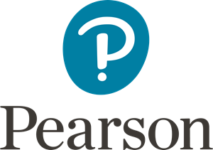Are you interested in a career in software development or cybersecurity?
If so, then our Level 3 Software Development and Cybersecurity course is the perfect choice for you. This course will teach you the skills you need to succeed in these rapidly growing fields.
The software development and cybersecurity industry is one of the fastest-growing industries in the UK. The demand for software developers and cybersecurity professionals is high and is expected to continue to grow in the future. This is due to the increasing use of technology in all aspects of our lives, from business to entertainment to healthcare.
Software developers are responsible for creating and maintaining software applications. They use their knowledge of programming languages, software development methodologies, and software engineering principles to create software that meets the needs of users. Cybersecurity professionals are responsible for protecting computer systems and networks from unauthorized access, use, disclosure, disruption, modification, or destruction. They use their knowledge of cybersecurity threats, vulnerabilities, and mitigation techniques to protect organizations from cyberattacks.
There are many different types of software development and cybersecurity jobs available in the UK. Some of the most common jobs include:
• Software Developer
• Cybersecurity Engineer
• Web Developer
•
Mobile Developer
• Game Developer
• Network Security Engineer
•
Information Security Analyst
The salaries for software developers and cybersecurity professionals are typically very good. According to the National Careers Service, the average salary for a software developer in the UK is £35,000 per year. The average salary for a cybersecurity professional is £40,000 per year.
The software development and cybersecurity industry is a great place to work. It is a fast-paced, challenging, and rewarding industry. There are many opportunities for career growth and advancement.
This course is for anyone who is interested in a career in software development or cybersecurity. No prior experience is required.












